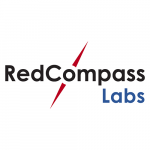The financial services industry is busy understanding how payments data can be leveraged. At the end of March 2022 for $150 billion, Apple quietly acquired Credit Kudos, a London-based start-up, aiming to provide fairer credit for all. Since other players from the industry like J.P. Morgan and Mastercard have just launched a proposition based on Open Banking. And then there’s Saudi Arabia and New Zealand, which have separately just taken strides with rolling out Open Banking frameworks.
The timing of these is rather interesting as we passed the four year mark since Open Banking’s implementation and the launch of Open Finance – geared towards facilitating the uptake of Open Banking in the UK.
So do all these announcements mean that the industry has finally figured out how to monetise the opportunities brought about by Open Banking, and more particularly by the exploitation of data?
To be fair, interest in data has been significantly growing over the past few years. The phrase, “Data is the new gold,” has been repeated ad infinitum in all the main payments conferences, like SIBOS and EBAday. Access to transactional data has also been said to be one of the main drivers for Big Tech to enter the industry. And that’s before we even look at the significant revenue potential. Open Banking was worth almost $18 billion in 2021 and is estimated to reach $20.2 billion this year. And its growth is set to steadily climb at a CAGR of 13.12% until 2027, according to Report Linker, creating a $37.5 billion market by then.
Many banks have struggled to change their business model and grasp the data opportunities spurred by Open Banking so far. Indeed, many banks still see it as a regulatory ask or even a money pit. Huge efforts are going into regulatory compliance in order to give Third Party Providers (TPPs) access to customer data. Sometimes all this effort is for almost nothing, as the number of TPPs consuming banks’ data is close to zero, particularly for banks serving corporate customers.
However, the new use cases from Open Banking should not be ignored. With the soon-to-come ISO 20022 go live, there has never been a better opportunity to leverage transactional data. From improving business processes to developing new customer services, killer propositions are already rapidly emerging. In terms of process improvement, by means of example, banks could:
- Implement stronger customer identification, and, by ripple effect, simplify their onboarding process
- Develop alternative credit scoring, which seems to be a real game-changing opportunity – let’s not forget how much Credit Kudos was acquired. Streamline banks’ product portfolios by using AI-based products, like that marketed by RedCompass Labs, to illuminate products that are no longer profitable
Data could also be used by banks to offer better value-added services to customers. RedCompass Labs’ top three use cases are:
- Data passporting. In a similar fashion to SGFindex or Singapore Financial Data Exchange in Singapore, banks could provide data to a third party like insurance or lender, to then in return get a better deal
- Product personalisation, leveraging AI-based data tools, like that developed by RedCompass labs, allowing our corporate clients to create stickiness with their own customers
- Better cash management services for corporate clients or personal finance managers for retail customers. This service is particularly relevant in times of crisis
The opportunities for Open Banking seem to be countless. Saying that, why are more banks not jumping on these potential new revenue streams? Instead, the majority of them are at the back of the herd, leaving the field open for other providers to swoop in. We have seen Big Tech market new and lucrative business propositions, and, beyond that, they could even end up defining future operating models, setting the standard for what the new regular level of service will be. To be fair, there are a few challenges that banks must overcome to really grasp the opportunities of Open Banking and become quicker than Big Tech to launch innovative propositions based on data exploitation.
- A mindset change is required, focusing on the customer’s true need, and moving away from the traditional banking internal silos, and banking division of products so that data can be consolidated and collaborated on.
- More importantly, there needs to be a modernisation of the current payments infrastructure, making sure that it is open, yet secure, and built on consolidated data silos, banks won’t be able to exploit data
The challenges mentioned above cannot be solved overnight. And, again, the competition is fierce, particularly considering that Big Techs have already mastered data exploitation. As such, the financial industry is just a natural extension of their well-established business model. However, by deciding not to grasp the data opportunity offered by Open Banking and revisit their business model, banks could really miss out, at the risk of being completely replaced by non-bank providers a few years down the line, proving that Bill Gates was spot on when he said, “banking is necessary, Banks are not.”
Being helped in this field by experts, like RedCompass Labs, could accelerate this much-needed transition. If you need help developing an Open Banking strategy or aligning your payments infrastructure with an already formed business strategy, please reach out to us. Our team will be delighted to discuss your challenges thoroughly and define a way forward in line with your business expectations.
Share this post
Written by

RedCompass Labs
Resources






